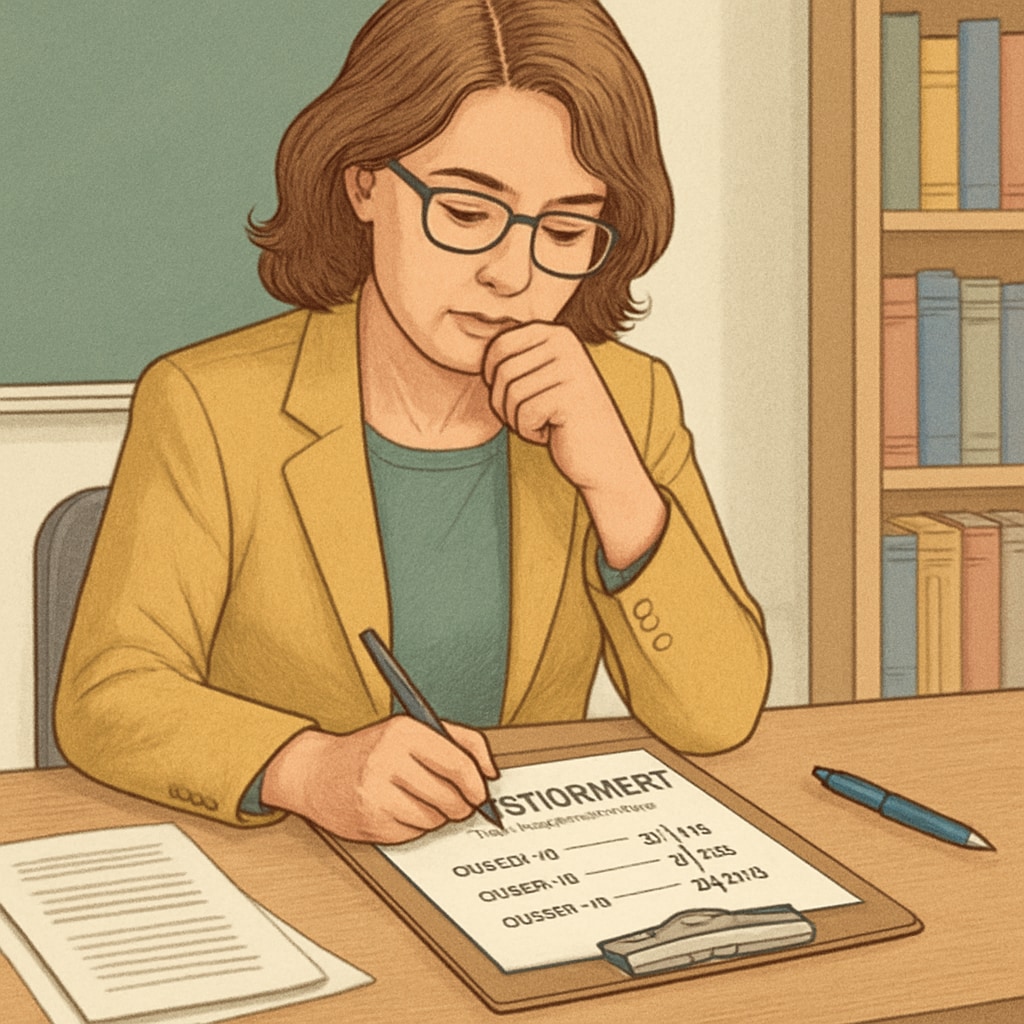The state of Oklahoma recently introduced a policy requiring out-of-state teacher applicants to undergo political inclination tests as part of the hiring process. This controversial measure has ignited debates on the balance between education neutrality and ideological oversight. While proponents argue that the policy ensures alignment with state values, critics warn of potential infringements on educational freedom and professional autonomy.
Understanding the Policy: What Are Political Inclination Tests?
Political inclination tests aim to assess an individual’s ideological beliefs, often through surveys, interviews, or written assessments. In Oklahoma’s case, these tests reportedly focus on determining whether a teacher’s political views align with state-defined educational values and cultural norms. The policy appears to stem from a broader national trend of increasing scrutiny over public education, particularly regarding the teaching of sensitive topics such as history, diversity, and social issues.

The Rationale Behind Oklahoma’s Approach
Supporters of the policy argue that public education must reflect the cultural and political values of the communities it serves. They believe the tests will help prevent the introduction of potentially divisive ideologies into classrooms, ensuring that curricula remain consistent with the state’s principles. As a result, hiring teachers who align with these values is seen as a proactive measure to uphold community standards within schools.
Furthermore, this approach is positioned as a response to growing concerns over perceived “indoctrination” in American schools. For example, debates over critical race theory and gender discussions have led some policymakers to advocate for tighter controls on who can teach in public education systems.
Criticism and Controversy: A Threat to Teacher Autonomy?
Critics of Oklahoma’s political inclination tests argue that the policy may undermine the professional autonomy of teachers. By prioritizing ideological conformity over qualifications and expertise, the state risks discouraging skilled educators from applying, particularly those from diverse backgrounds or with differing viewpoints.
Additionally, opponents warn that such measures could lead to censorship and the suppression of critical thinking in classrooms. Public education, they argue, should expose students to a variety of perspectives, fostering independent thought rather than imposing singular viewpoints. The policy may also set a precedent for other states, raising concerns about further politicization of education nationwide.

Implications for Education Neutrality and State Policy
The controversy surrounding Oklahoma’s policy underscores the challenges of maintaining education neutrality in politically polarized times. While states have the right to shape their education systems, the introduction of political inclination tests raises broader questions about the role of ideology in public education. Should teaching be strictly neutral, or is it inevitable for education systems to reflect societal values?
According to the Wikipedia entry on Education Policy, public education systems are often influenced by political and cultural factors. However, policies like Oklahoma’s risk tipping the balance too far, potentially eroding trust in the impartiality of educational institutions.
Finding a Balance: Recommendations for Policy Refinement
To address the concerns raised by critics while still maintaining alignment with state values, policymakers could consider alternative approaches:
- A focus on professional development programs that emphasize cultural competence and local curriculum standards.
- Transparent evaluations based on teaching skills and qualifications rather than personal beliefs.
- Incorporating feedback from educators, parents, and students to ensure policies reflect diverse perspectives.
By refining the policy to prioritize educational merit and inclusivity, Oklahoma could mitigate concerns about ideological control while safeguarding the quality of its teaching workforce.
Conclusion: The Future of Teacher Hiring in Oklahoma
Oklahoma’s decision to implement political inclination tests for out-of-state teacher applicants has sparked significant debate about the intersection of education, politics, and professional autonomy. While the policy may address concerns about ideological alignment, it also risks alienating qualified educators and compromising the principles of education neutrality. As states navigate these complex issues, finding a balance between community values and professional independence will be crucial to ensuring equitable and effective public education systems.
Readability guidance: Use concise paragraphs, integrate lists for clarity, and maintain a neutral tone to address both sides of the debate. Overuse of technical jargon is avoided to ensure accessibility for a broad audience.


